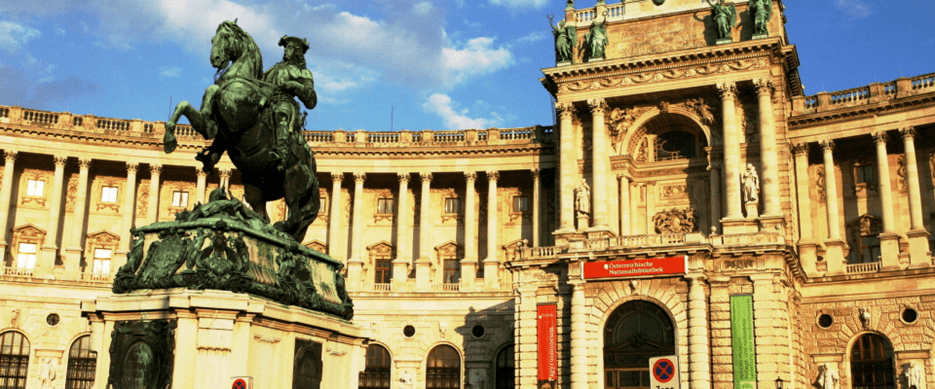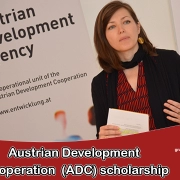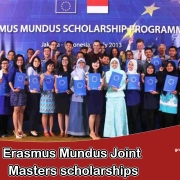Study in Austria for international students for free
Austria shines brightly on the global stage and is celebrated for its blend of high living standards and forward-thinking perspectives. With its captivating cultural tapestry, breathtaking landscapes, and esteemed academic institutions, Austria has firmly positioned itself as a premier destination for international scholars pursuing top-tier higher education.
The educational milieu in Austria resonates with diversity, beckoning students from every corner of the world. Whether captivated by its prestigious universities, cutting-edge research infrastructures, or avant-garde academic offerings, Austria is ready to nurture intellectual pursuits and cultural explorations.
Within this guide, we journey into the intricate facets of pursuing education in Austria, offering insights into admission intricacies, academic dynamics, and the rich tapestry of Austrian culture. Choosing Austria as your academic destination not only paves the way for acquiring globally esteemed credentials but also immerses you in a harmonious blend of timeless allure and contemporary conveniences, solidifying its allure for ambitious scholars globally.

Education System in Austria
The education system in Austria is renowned for its quality, structure, and comprehensive approach to nurturing students from a young age through to higher education. Here’s an overview:
Structure:
- Primary Education (Volksschule): This is compulsory for children aged 6 to 10. It provides a broad foundation in mathematics, science, languages, and social studies.
- Lower Secondary Education (Hauptschule or Neue Mittelschule): After primary education, students move to lower secondary schools, typically between the ages of 10 to 14. Here, they receive a more in-depth education with a focus on preparing them for vocational training or further academic studies.
- Upper Secondary Education:
- General Education (AHS – Allgemeinbildende Höhere Schule): This prepares students for university studies and offers a more theoretical approach.
- Vocational Education (BHS – Berufsbildende Höhere Schule): Provides practical skills and prepares students for specific professions or technical roles.
- Tertiary Education:
- Universities: Austria boasts several top-ranked universities offering a range of bachelor’s, master’s, and doctoral programs across various disciplines.
- Universities of Applied Sciences (Fachhochschulen): These institutions focus on practical skills and offer professional-oriented programs.
- Private Universities: Apart from public institutions, private universities also offer specialized courses.
Features:
- Quality Assurance: The Austrian educational system strongly emphasizes quality assurance, ensuring institutions meet rigorous academic standards.
- Dual Education System: Austria is known for its dual education system, integrating classroom learning with practical, on-the-job training, especially in the vocational sectors.
- Multilingual Education: While German is the primary language of instruction, many universities and schools offer programs in English and other languages, enhancing global accessibility.
- Research and Innovation: Austrian universities and institutions actively contribute to global research and innovation, fostering collaboration and advancement in various fields.
Why study in Austria
Studying in Austria offers many advantages, making it an attractive destination for international students. Here are some compelling reasons:
High-Quality Education:
- Reputation: Austria boasts a strong academic reputation, with several universities consistently ranking high in global university rankings.
- Excellence in Research: Austrian universities are renowned for their cutting-edge research facilities and contributions to various fields.
Diverse Study Programs:
- Broad Range of Courses: Whether you’re interested in arts, sciences, engineering, or business, Austrian institutions offer a diverse range of study programs catering to various academic interests.
- Dual Education System: Austria’s unique dual education system integrates theoretical knowledge with practical training, providing students with hands-on experience and industry-relevant skills.
Cultural and Social Experience:
- Rich History and Culture: Imagine Austria’s rich history, vibrant culture, and stunning landscapes. From picturesque cities like Vienna to the majestic Alps, Austria offers a unique blend of urban and natural beauty.
- Multicultural Environment: With a growing international student community, studying in Austria provides an opportunity to interact with peers from diverse cultural backgrounds, fostering global perspectives and lifelong friendships.
Affordable Education:
- Tuition Fees: Compared to other European countries, Austria offers affordable tuition fees, making it an attractive option for quality education without breaking the bank.
- Scholarship Opportunities: Various scholarships and financial aid options are available for domestic and international students, further easing the financial burden.
Career Opportunities:
- Internship and Job Prospects: Austria’s robust economy and thriving industries offer ample internship and job opportunities for students, especially in sectors like technology, healthcare, and tourism.
- Post-Study Work Options: After completing their studies, international students can extend their stay and explore job opportunities through Austria’s post-study work visa options.
Quality of Life:
- Safety and Security: Austria is known for its high safety standards, offering a secure environment for students.
- High Standard of Living: With excellent healthcare, transportation, and infrastructure facilities, Austria ensures a comfortable living experience for students.

University Ranking in Austria
You can enroll in any of Austria’s higher education facilities, including public and private universities, colleges, universities of applied sciences, business schools, etc. As a result, you will have many options. Here are the top 9 internationally ranked Austrian universities:
| University | Q.S. world university ranking |
| University of Vienna | =150 |
| Vienna University of Technology | =191 |
| Universität Innsbruck | =265 |
| Graz University of Technology | =275 |
| Johannes Kepler University Linz | =362 |
| University of Klagenfurt | 511-520 |
| Karl-Franzens-Universitaet Graz | 581-590 |
| Paris Lodron University of Salzburg | 751-800 |
Cheap Universities in Austria
Compared to studying at home, studying abroad is more expensive. You can enroll in inexpensive universities in Austria if you cannot afford expensive universities. Here are a few examples:
- University of Vienna
- Medical University of Vienna
- University of Innsbruck
- Medical University of Graz
- Vienna University of Technology
- Graz University of Technology

Requirements to study abroad in Austria
Because Austria has a variety of universities, there are also a variety of admission requirements. For accurate information, you should visit the website of the specific university. However, the typical prerequisites for Indian students to study in Austria are:
1. Photocopy of your passport or ID Card
2. Duly filled University application form. It can be downloaded from the university’s website or will be sent by them
3. A valid passport
4. General university entrance requirements:
- For undergraduate studies: secondary school leaving certificate or equivalent
- For postgraduate studies: bachelor or equivalent degree
- For Ph.D.: diploma, master or equivalent degree
5. Transcripts of previous education.
6. German language proficiency or English language proficiency scores
7. Letter of recommendation from professors or managers
8. Statement of purpose
9. Resume or C.V
Study in Austria without IELTS
Yes, enrolling in Austrian universities without taking the IELTS is possible if you present a unique personal profile. You can apply for one of the following programs to be admitted without taking the IELTS in Austria.
- Provide other English language proficiency certificates such as TOEFL, PTE, etc.
- Your educational background also matters. It reveals your proficiency in your English skills, which can help you get exempted from IELTS.
Cost of Studying in Austria
The typical semester tuition cost for international students attending Austrian universities is €726.72. In comparison to other European countries, this is much more affordable. Other living expenses include:
- Accommodation € 400 (including electricity bills)
- Food € 250 (excluding luxurious food items)
- Studies € 300 and personal requirements (books, project work, recreation), etc.
The monthly cost of living is approximately € 950. Is it not reasonable? Additionally, you can apply for scholarships to lower the cost of your studies in Austria.
Study in Austria scholarship
You must use scholarships to fund your journey to study for free in Austria. You can find many scholarships for international students if you do your homework. A few scholarships for study in Austria are mentioned here.
- Richard Plaschka Grant
- APPEAR – Austrian Partnership Programme in Higher Education and Research for Development,
- ERASMUS+
- Erasmus Mundus Joint Master’s Degrees
- University of Salzburg Scholarships in Austria
- The Next Generation Scholarship for Ph.D. Candidates at Modul University
- University of Salzburg Research Fellowships in Austria
- OFID Scholarship Awards in Austria for Developing Countries
Student Visa for Austria
You can apply for student visas to Austria at the appropriate Austrian representative authority. You should submit your application three and six months before starting your Austrian course. You will need the following paperwork:
- Application form
- A valid passport.
- Passport-sized photos as per the ICAO criteria.
- Confirmation of enrollment in the higher education institution of Austria
- Proof of sufficient financial means finances your stay for 12 months.
- Evidence of travel health insurance for your studies in Austria.
Study and work in Austria for international students
Working is permitted while an international student is enrolled in classes in Australia. However, hours of employment with a student work permit are subject to restrictions. With a valid student visa, they are only permitted to work 20 hours per week. The number of hours during vacations is unrestricted.
In addition to their residence permit, international students must also apply for a work permit. Your potential employer will typically submit the work permit application on your behalf. For this process, the student must be enrolled at an accredited university and possess the required visa and residency documents.
Frequently Asked Questions: Study in Austria
Austrian universities are highly regarded on a global scale. Numerous highly regarded universities in Austria guarantee all students a high-quality education. For students from the European Union, Austrian universities waive tuition at all of their public institutions. The annual tuition for international students at Austrian universities is roughly EUR 1,500. The University of Vienna is the oldest German-speaking university in Austria and was founded in 1365. The university offers students nearly 200 programs and has been honored with 15 Nobel prizes. They are being taught in English to a large extent.
European and non-European nationals find Austria one of the most affordable options. The application fee must be paid for the application to be reviewed and processed at any of Austria’s universities. Students must pay the fees to apply; otherwise, it will be rejected. European citizens enjoy many advantages. They are not required to pay anything to attend Austria’s public universities.
The expected tuition for students from outside of Europe ranges from 3,000 to 23,000 EUR per year, and some specialized courses cost as much as 35,000 EUR or more.
On average, international students in Austria spend 950 EUR per month on living expenses. International students’ costs vary depending on where they attend university; for example, Vienna and other large cities have higher housing and living costs than smaller cities.
In Austria, many grocery stores offer fantastic deals that let students purchase food at affordable prices. The universities known as Mensa have self-service cafeterias where students can eat well.
Internship opportunities in Austria are abundant for international students. Students can find internship opportunities at Austrian Agency for International Cooperation in Education and Research (OeAD).
After receiving their degree, students from third-world nations with residence permits can stay in Austria for 12 months. The stay should be to look for work or start a business. Before the student visa expires, the students must apply for confirmation from the responsible residence authority (MA35).
The student may apply for the RWR (Red-white-Red) card if they are employed within the next 12 months. The student’s education should be in line with the job’s requirements. The student’s RWR card enables a 24-month temporary residence in Austria. The benefit for the students is that they avoid going through a points system and labor request test after applying for the RWR card.
All students must finish at least twelve years of education (Higher Secondary Certificate). The universities in Austria accept applications for undergraduate, graduate, and Ph.D. programs.
Austria has many employment opportunities: architect, accountant, marketing manager, product manager, software engineer, UX designer, nurse, web developer, teacher, etc. One of Europe’s top travel destinations is Austria. As a result, Austria offers many job opportunities in the tourism sector, including in resorts, hotels, restaurants, etc.
Due to its wonderful and economical lifestyle, Austria draws many international students. The Global Peace Index rates Austria as one of the world’s top ten most peaceful nations. According to the World Happiness Report, Austria is one of the happiest countries in the world. Austria is one of the least corrupt nations; it charges a reasonable fee per semester of about 70,000 Indian rupees and provides many post-study job opportunities.
Yes, a European health insurance card is sufficient if you want to continue paying premiums in your home country.
Please note that the subsidy will be paid according to one person’s living expenses. Please check the requirements for a family membership.
Please note that some dormitories do not have family rooms. It is therefore advisable to find suitable accommodation before arrival.
After arriving in Austria, you must visit the competent regional office within 3 working days. The first scholarship installment will be paid by check.
To receive the first scholarship installment, you must prove your identity with an identity document (passport or ID card), health and accident insurance recognized by the Austrian authorities, and a visa (third-country nationals only).
If you arrive after the 15th of your first scholarship month, you will only receive half the scholarship rate for that month.
The final grant installment will be paid from the 16th of the last grant month (until the end of the month for grant periods) or the 5th of the last grant month (mid-month for grant periods) after application submission. Only reports with the signature and seal of the supervisor will be accepted. The previous month, she will only receive half of the previous month’s scholarship rate if she moves out before the 16th or 5th.
Yes, Austria offers tuition-free education for international students, including those from non-EU/EEA countries, at public universities and colleges.
The requirements may vary depending on the university and the specific program, but generally, you will need to meet the academic qualifications for admission, demonstrate proficiency in the language of instruction (usually German), and fulfill any additional requirements specified by the university or program.
Most undergraduate programs in Austria are taught in German, so proficiency in the German language is typically required. However, some universities offer programs in English, especially at the graduate level. It’s essential to check the language requirements for your chosen program.
To apply for admission, you typically need to apply directly to the university or college offering your desired program. The application process may vary depending on the institution, so it’s essential to carefully review the application requirements and deadlines.
Generally, tuition-free education in Austria is available for a wide range of fields and disciplines offered at public universities and colleges. However, some specialized programs or private institutions may have tuition fees or specific admission requirements.






Hi
Im Udaya from Sri Lanka , im 38 years old , after my A/L ,i have joined with my job, upto now i hve more that 10 year working experience , so i want to know can i join with austrian universities using my working experience ?